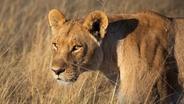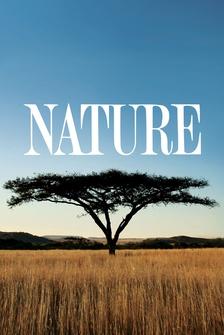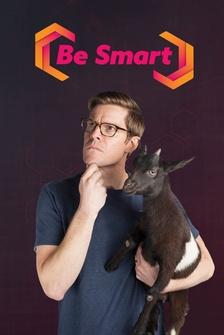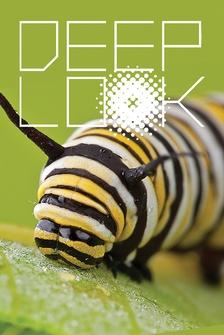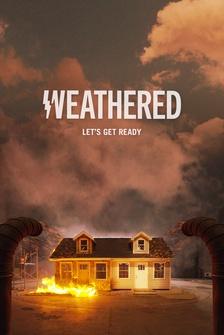♪ Man: She clearly knows the deal.
Seen her with impala underneath her tree several times.
We've yet to have that-- that full execution.
She makes a mistake, she gets hurt badly.
Animals that get hurt out here don't survive very long.
♪ She's going.
♪ ♪ Narrator: The Okavango Delta in Botswana, one of Africa's last wildernesses.
Man: Okavango Delta is-- it's an oasis in the desert.
It's a miracle in itself.
Narrator: And it's a stronghold for Africa's big cats-- lion, cheetah, and leopard.
Man: This is nature at its absolute finest.
♪ Narrator: Now, for the very first time, a team of local and international wildlife filmmakers is working together to record the cats' lives like never before.
♪ They'll follow individual big cats for 6 months through the day...
This is crazy.
This is a battle.
Narrator: and the night... Man: Lions have got amazing night vision, but it's not as good as this.
Narrator: capturing their behavior...
He's got the cub.
He's got the cub.
Narrator: 24 hours a day.
Welcome to the Okavango Delta.
It gets crazy.
[Roars] [Mews] ♪ Man: My heart is pumping already.
Narrator: The "Big Cats" team is working in an area covering 150 square miles.
At its heart is a remote film camp built by wildlife filmmaker Brad Bestelink.
Bestelink, voice-over: I've grown up in the Okavango, been part of it my whole life.
Narrator: Here, expert wildlife camera operators from the United Kingdom... How you doing?
You all rigged...
This is great.
Yeah.
Narrator: and Botswana... OK, so you can put it there while I'll film it, yeah.
Narrator: are preparing to film the lives of the resident big cats.
[Birds chirping] [On radio] And that's great starts.
[Engine starts] ♪ [Zebras barking] ♪ Narrator: It's the dry season.
[Barking continues] ♪ Just slowly by slowly building up a picture of this whole area.
♪ Rea: Rea for Vianet.
Any update?
Djenguet, on radio: I've got them right now.
Rea: We're just in grassland, and plenty of prey right around us.
Narrator: The challenge for the lions is that they have many hungry mouths to feed.
This is the Xudum Pride.
♪ Buchanan: This isn't the whole pride.
The pride itself numbers over 20.
[Mews] Buchanan: It's one of the largest prides in the Okavango... [Growling and huffing] Buchanan: headed up by these two big guys-- Big Toe and Madumo.
At the bottom end of this family, you've got these cubs... [Mewing] Buchanan: cubs of different sizes to different females.
When you look at these tiny, little new additions to this family... these are the lions that are gonna grow up into the giants and the powerhouses of the future.
[Growling] Buchanan: Think that's why I want to see them, because there's all that potential there.
Narrator: At the core of the Xudum Pride... ♪ Djenguet: Look at the family portrait right there.
Narrator: are 3 highly experienced females and mothers.
Djenguet: Oh, superb.
This is Nosi.
See, she just had, um, cubs recently.
She's their huntress.
She's confident and powerful female, and she's an incredible hunter.
Good morning.
Ha ha ha!
I think she heard what I just said.
She's part of the core of this pride alongside Magogo and Mmakgosi.
It's most likely that they're related, even sisters, and between them, they have currently 6 cubs.
♪ Buchanan: These females with cubs, they're not only nourishing themselves.
They're having to--to feed the cubs, provide milk for them.
Narrator: At over 3 months old, the cubs also need to eat meat for their growth and development.
[Mewing] ♪ [Barks] Buchanan: So, Vianet, I can see the zebras, so I'm not gonna go any closer.
I'm just gonna wait here.
♪ Djenguet, on radio: Copy that, Gordon.
♪ Buchanan: You would think many hands make light work, but when it comes to these males getting involved in the hunt for something as keen-eyed as a zebra, it's better that they just-- boys just stay out of it.
They are big, huge manes, and they stick out like a sore thumb.
♪ Buchanan: Dingbat, what are you doing?
♪ [Growls] [Barking] ♪ [Barking continues] [Growls] Buchanan: Think when people see something like a lion-- this top predator--they go, "Well, catching food must be easy for a animal as well-equipped," but in reality, it is incredibly difficult for these lions to get a single meal.
[Grunts] Buchanan: Food is never that far away from the mind of any lion.
♪ Hunger is just-- well, it's just a constant way of life... ♪ so I would say that this is not-- not gonna happen for the lions this time.
[Barks] Buchanan: If those females go without food, the cubs can suffer.
♪ [Bird squawks] Narrator: Far away from the lions, camera operators Anna and Greg... Greg, on radio: So if you come, better you come around on the northern slope.
Narrator: are pursuing a more elusive cat.
Anna: In an area that is crawling with lions, there's only one resident cheetah, and her name is Pobe.
♪ The cheetah have been so unpredictable at the moment, it's very hard to know what their movements are gonna be, there are so many lion in the area, and they really, really hate lions, so that makes it a real challenge.
♪ Anna, I think I have some clues on the road just up ahead of you.
Might have some nice-looking cheetah tracks here.
There.
Yeah.
There.
This is the hind foot... Yeah.
front foot.
See, it's a little bit more elongated over here.
Mm-hmm.
Well, this is really encouraging.
It's good, eh?
Yeah.
Dimitriadis: This grass is really high, so there's no chance we're gonna be seeing a cheetah from this level.
Let's get the drone up.
♪ I'm just gonna check along these termite mounds because termite mounds are the perfect spot for cheetahs to have a good vantage point to look out for any prey.
They love open, flat areas where they can really utilize their speed and agilities.
♪ As the sun comes higher and gets a bit stronger, these cheetah are gonna also be looking for a little spot of shade... Mm.
so, yeah, we do need to make the most use of the times that we think they're probably gonna be moving about.
[Birds chirping and squawking] ♪ Narrator: Across Africa, there are only 7,000 cheetahs left in the wild.
♪ With 25% of those living here in Botswana... [On radio] Narrator: it's not long before there is success for the team.
[On radio] Anna, you're not gonna believe this, but... ♪ I found a cheetah ♪ ♪ Mm mm mm mm mm mm ♪ No way.
I'm coming.
♪ [Bird squawking] Dimitriadis: This is Pobe.
♪ Dimitriadis: She's a cheetah that's quite known in this area, and she's known for being particularly streetwise.
It's always been a dream of mine to see a wild cheetah.
It's stunning, so beautiful.
♪ Hey, I can see that she's got almost like a grayish patch on one of her cheeks.
Hartman, on radio: Mm-hmm.
It's quite funny.
"Pobe" means dimple in Setswana.
Because of the position of that birthmark, somebody thought it was a cute idea to call her Dimple.
I love that.
That's such a cool name.
[Bird chirping] [Wind blowing] ♪ [Engine starts] ♪ Dimitriadis: Wonder if it's the wind that's perking her up.
♪ I know how much these kind of predators use the wind as cover for hunting.
Narrator: Capable of accelerating from zero to 60 miles per hour in 3 seconds... What are you doing?
Are you hunting pigs?
Narrator: cheetahs can't rely on speed alone to catch a meal.
♪ [Grunting] ♪ Dimitriadis: If I take my eye away from this eyepiece for about two seconds, just, like, where?
Ha!
Where is she?
She's just so hard to spot.
They're just so incredibly camouflaged.
Narrator: But warthogs... Hartman: Pigs can see her.
Narrator: are always on high alert.
[Pig grunts] Hartman: You all have lost her already?
♪ Can't see her at all.
♪ Time to go home.
♪ Narrator: These elusive cats are hard to track by day.
By night, the challenge is even greater.
To help, Gordon is preparing a new piece of equipment.
The most exciting addition to my camera kit is this.
It is a thermal imaging camera that was kind of military-grade technology, and this is gonna be able to do what lions and leopards can do, which is to see in the dark.
We're heading out with the most exciting camera for a wildlife cameraman in one of the most exciting places in the world, one of the best places to see big cats, so now I'm stoked.
♪ [Animals bellowing] ♪ [Elephant trumpets] Narrator: Night in the Okavango brings total darkness.
♪ Without this technology, the "Big Cats" team wouldn't be able to see a thing.
Buchanan: Lions have got amazing night vision, but it's not as good as this.
I'm able to see things that they can't see, which is quite mind-blowing.
[Insects chirping] Mm, some nice big lion tracks here.
I think we are heading in the right direction.
Here they are, clear as a bell.
[Insects chirping] Narrator: The night brings cooler temperatures.
This is the lionesses' preferred time to hunt.
♪ [On radio] Hey, dudes, um, I'm stuck with a flat tire.
Schulte to Brinke, on radio: OK.
Copy.
I'll be there just now.
♪ So the back tire has completely gone flat.
♪ Nice and close to the lion.
We just finished filming the cups and the mothers.
What can possibly go wrong?
♪ Have you seen the cat prints just ahead of us?
Really?
It's fresh.
I can see that it's fresh.
So they've just been here?
This side, on the right side, yeah.
Ooh.
♪ Djenguet: This is asking for trouble, isn't it?
♪ Think that's enough, right?
Yeah.
Good job.
Schulte to Brinke: Now let's-- let's get to camp.
♪ Narrator: It's not known when the lionesses last had a meal... Buchanan: What the hell's going on?
Narrator: but a good indication of how hungry they are is the type of prey they're targeting.
Buchanan: Porcupines.
Two porcupines.
[Lens whirring] Out of desperation, lions will attack porcupines, but they've got those big, needlelike quills for a reason.
I've seen lions with their face absolutely covered in spines.
Once they go in, it's very difficult to get them out.
Narrator: With young cubs to provide for... [Roars] Buchanan: Right.
Don't mess with them.
Narrator: this lioness can't afford to get injured.
♪ [Vehicle approaching] Narrator: It's not long... Buchanan: Oh, dear.
Narrator: before the lionesses find more suitable prey-- Buchanan: This could be it.
Narrator: a lechwe, a wetlands antelope.
♪ Buchanan: They've got an animal that is completely oblivious, walking straight towards them.
♪ Predator knows that prey is there.
Prey doesn't know that predator's there.
♪ No, no, no, pal.
You're making a big mistake.
♪ Now it knows something's not quite right.
♪ Narrator: Lechwe can outrun lions... Buchanan: She's gonna have to come round the front if she's gonna stand a chance of getting it.
Narrator: but lions are one of the only big cats that actively work together to hunt their prey.
♪ Buchanan: Lost her, lost her.
♪ She's put herself in a position behind one of these hummocks, and she might explode out, and if she pushes it back, it's gonna run straight into the jaws of her sister.
♪ My goodness, this is not a place to be out on your own.
Dang, dang, dang.
♪ [Snorts] Buchanan: Oh, oh, oh.
♪ Girl, you did everything right.
I don't know what went wrong there.
[Panting] Buchanan: Holy bananas.
That was this close.
Uh!
It's too much stress for one night.
Narrator: The lionesses press on.
[Roar] Narrator: Unable to follow, Gordon calls it a night.
♪ In camp... [Elephant trumpets] Hartman: Hey, out, out.
Hey, out, out... Narrator: there's a reminder the team is living in a wilderness... Hartman: Out.
Out.
Buchanan: I'm always slightly, slightly nervous around elephants that I don't know.
♪ Go on.
Out.
Come on.
Out.
Come on.
Come on.
Out!
Go on.
Go on.
Hey, out.
Out, friend.
Narrator: but a 5-ton bull elephant... Out, friend.
Narrator: can't be made to feel at home.
Hey, out.
Out.
Out.
Out.
Get out.
Come on.
Out.
Get out.
Out.
Buchanan: Just driven off a bull elephant.
Ha ha ha!
Out!
Hartman, voice-over: That's not a normal event, but elies, they're intelligent creatures, and they kind of pick up when you don't want them around, you know?
I think they learn.
You just got to tell them, "Listen, mate.
It's not happening today," and typically, they get the message.
I'm shaking a little bit, but it's part of the deal.
♪ Narrator: Greg and Anna are heading out of camp.
♪ Close by, wildlife cameraman Sets has spotted something interesting.
[On radio] Narrator: He's located a group of Xudum Pride lionesses.
It's not Nosi and the other mothers.
Sets, on radio: Looked like two lionesses.
I'll get a closer view and, yeah, see how many there are in total.
Narrator: Anna and Greg are heading over to see what's happening.
[Grunts] Trying to decide which direction to go.
I don't want to cut them off, but-- Hartman: I'm not exactly sure who they are.
It's interesting because they do look like they've had a meal not too long ago.
Hartman, on radio: Got a visual of a leopard.
The hell?
♪ Narrator: Leopards are powerful predators, but physically, they're no match for lions.
♪ Greg, um, did you say you have a view of a leopard?
Hartman, on radio: Um, she's just a little bit ahead of me.
You have leopards and lions in close proximity.
♪ Nthomiwa: Yeah.
I see them.
♪ Narrator: Leopards typically avoid lions, but this one is reluctant to leave.
[Beep] Hey, you both, it has a kill up in the tree.
I can see a tail just dangling.
Nthomiwa: Yeah.
I think the leopard's killed something, maybe early on today.
Narrator: To keep its food safe, the leopard has stashed it in the tree.
♪ Nthomiwa: The lions got wind of the kill.
♪ Dimitriadis: Oh, that leopard needs to stay hidden, or those lions could kill her.
♪ Hartman, on radio: They're running, eh?
One of them is running across here.
Do you see that?
Danger.
♪ [Bird squawking] ♪ Narrator: The leopard is retreating.
♪ Dimitriadis: OK, OK. She's gone.
♪ Nthomiwa: Oh, it's climbing up the tree.
Wait.
Wait.
♪ Narrator: Lions are 3 times heavier than leopards.... Dimitriadis: That is absolutely incredible.
Narrator: and aren't built for climbing trees.
In the Okavango, this unusual behavior is rarely witnessed.
♪ These lionesses think that they're leopards.
[On radio] It's quite amazing, eh?
♪ Nthomiwa: Welcome to the Okavango Delta.
Uh, it gets crazy.
Ha ha!
Oh... What a morning.
That was crazy, wasn't it?
Yeah.
Yeah.
I didn't know about you, but my heart rate was through the roof.
This does not happen a lot... No?
I have to say, no.
It's surprising.
You think lions can't really climb vertical trees, but if they're motivated enough, as you have seen... Yeah.
they will do it.
Narrator: These skillful lionesses might have scavenged a small snack... ♪ but it's not going to feed a family.
Nosi and the other pride mothers still need a successful hunt if they're to feed their cubs.
These two females, Nosi alongside Magogo, they probably went for a hunt, and they're coming back with nothing.
Their cubs are going in, and they're greeting them.
When one mother is on a hunt, the rest look after her cub.
It's like this saying in Africa-- "It takes a village to grow a child."
This is Mathata.
He's around 6 months old.
His mom is Magogo.
Ha!
Look.
Look how much bigger he is than the other cubs.
He shows curiosity, strength, dominance.
When he grows up, he will be, like, you know, strong and powerful enough to be one of the leading character in the pride.
He's ticking all the boxes.
♪ One of the features of lionesses' social structure is that they will circle one another cubs.
♪ They have that sort of creche ambiance.
♪ [Mewing] Mathata seems to be muscling his way in, you know.
He seem to be-- He always seem to get what he wants.
Of course.
He's Mathata.
♪ Narrator: Highly nutritious, lion's milk has over 4 times more fat than cow's milk... Djenguet: Aw, the small one wants to circle.
Narrator: and competition between the cubs is high.
Djenguet: Aw, she's being bullied.
I'm worried about the smallest one, who's not getting enough, because if he carries on like that, it could be a bad news for her.
♪ I would like to see them eating more and growing faster, as fast as possible, to overcome that sad fact that only 20% of the cubs make it to adulthood.
Narrator: With no meat to satisfy their growing appetite, the cubs are demanding more milk, putting pressure on Nosi and the lionesses.
♪ There are a few down here.
Narrator: Anna and Greg are back on the trail of Pobe the cheetah.
Dimitriadis: Yeah.
I'm almost certain that those are cheetah tracks, so I'm gonna just keep going in that direction and see where those tracks lead us.
It looks like we're following some cheetah tracks here.
OK. Yeah.
Nice one.
All right.
Well, we'll head up the road, and we'll bump into you.
I'll be keen to have a look and see if we can figure out a direction.
♪ Narrator: Anna's tracking skills are beginning to pay off.
♪ [Gasps] No way.
♪ Dimitriadis: Greg, it's definitely not Pobe.
This looks like a male to me.
Do you know who this is?
[Beep] Hartman, on radio: Interesting, Anna.
It looks like a cheetah that we know as Sepoko, a male.
We hardly ever see him, eh?
I think I've only ever seen him once before, in fact, so-- What does that mean?
He's called Sepoko because he disappears and reappears without any obvious pattern, so he's very ghostlike.
"Sepoko" means ghost in Setswana.
Oh, I like that.
I like that a lot.
Could easily be hunting.
The other possibility-- Sepoko could be looking for Pobe in this area.
I mean, it's a bit of speculation, but wouldn't that be extraordinary, Sepoko and Pobe coming together?
OK.
He's scent-marking.
Scent-marking is their main form of communication.
Cheetah are really shy, so they basically use tree trunks or termite mounds as messaging boards.
They don't want to get into fights, and that's particularly true for the males.
For cheetahs like Sepoko, he's a solitary male.
He's got no backup.
He's not in a coalition, so he's gonna want to avoid other males at all costs.
He's using that tree as a vantage point now.
Good eyesight is really important for cheetahs over lions and leopards because they hunt by the day.
He is just cruising along here.
You can see what he's doing.
He's just using the flat areas as cover, and then he's hopping up on a termite mound and he's scanning out, and then he just melts back into the grass.
It's really cool.
♪ Something has changed in his behavior, and I feel like he's just gone into hunt mode.
He's moving really quick.
He's just bolted.
He's completely bolted in that direction.
No.
OK.
I've just lost him behind that treeish area over there.
No.
♪ [Insects chirping] [Bird hooting] Narrator: Back on the night shift, Gordon has picked up on the trail of the hungry lionesses.
♪ [Engine stops] [Sloshing] Buchanan: She's come down to look for a drink of water, but there is-- there's nothing.
Narrator: They still need to provide a meal for the cubs.
Buchanan: This was a big water hole, but now it is just mud and catfish slipping about in it.
Catfish can breathe air, so as long as there's some moisture to keep their skin damp, they can survive.
She's just triggered by the movement.
Every time one flaps, she just can't help herself.
[Grunting] Buchanan: Big cat eating a catfish.
Does this count as a hunt?
This mud is really smelly.
When there was water here, there had been lots of hippos, so they're defecating in the water, and it all just condenses down, so this is just kind of a mixture of mud and hippo number twos.
♪ [Grunting] ♪ Buchanan: You got one, maybe not as tasty as an impala or a wildebeest or a zebra foal, but it's something.
Is she gonna eat it?
Nope.
She's let it go.
She's not one to eat a catfish that's squirming about in hippo feces.
♪ Narrator: With night vision 6 times better than our own, they're soon focused on a more suitable target.
♪ Buchanan: The lions have seen the tsessebe.
They're splitting up.
Narrator: To increase their chances, the lionesses have teamed up with more of the pride.
♪ Buchanan: Oh, my goodness.
3 subadult males are the most engaged in this hunt.
♪ [Gasps] Your male lions have a reputation of letting the females do all the hard work.
♪ This may be their opportunity to show their worth.
♪ [Snorts] ♪ [Lens whirring] ♪ Buchanan: Oh, she's poised.
She's ready to go.
[Lens whirring] ♪ Oh, my goodness.
They're completely surrounded.
[Lens whirring] This is your worst nightmare.
♪ It is happening.
He's running.
Ooh, dopey boy.
You dunder, you messed that up, or did you?
No.
[Screeching] ♪ Buchanan: How did you get away from that?
That is one lucky beast.
[Grunting] Buchanan: Oh, they did get one.
Suppose if you're gonna be caught by a lion, be better for you if it was 6 rather than one.
♪ It's a pile-on.
[Grunting] I'm gonna put the drone up, see how many are here.
♪ Look at that.
♪ 1, 2, 3, 4, 5, 6, 7, 8, 9, 10.
10 lions.
♪ The bigger the lion, the more food they get... ♪ so it's just the 3 young males.
They're getting most of the food because they can muscle in.
[Growling] ♪ Narrator: Pushed off the kill by the subadult males... ♪ the lionesses barely get a bite.
♪ Buchanan: With this number of lions, one tsessebe's not gonna go that far.
That's not really enough to sustain them.
Narrator: The cubs still haven't had the food they need, and it looks unlikely they'll feed tonight.
♪ [On radio] Narrator: Early riser Rea is hoping to find Nosi and the other lioness mothers.
♪ [On radio] [Panting] Djenguet: The lions are just currently headed into the grass, into this tall grass here.
We're currently with Nosi, Mmakgosi, and Magogo.
They've just left the cubs nearby.
They are stalking a huge herd of zebras just in front of us.
Narrator: To feed their cubs, these lionesses must make a kill.
♪ Djenguet: At the moment, the herd is completely unaware of what's happening.
[Snorts] So these 3 mums have been joined by another lioness, so they're actually 4.
4 lionesses will have a very good chance with zebra.
♪ Narrator: Hunting as a group helps lions take down much larger prey.
♪ [Zebra barking] Djenguet: It's started.
[Barking continues] Djenguet: They've got it.
♪ [Grunts] ♪ It's done.
One of the zebras is done.
We need to reposition.
I can see 3 lionesses with the zebra there.
On the way with the cubs is Mmakgosi.
This will be great for Mathata and all his siblings.
We've got the females placing dust over the internal organs just to hide that scent.
They don't want scavengers coming.
If vultures came, it would be a good indication for other lions to come.
Schulte to Brinke: Rea for Vianet.
Rea for Vianet.
Copy?
[Beep] Vianet, Vianet.
The mums have done it.
They've made a kill.
We've got a zebra kill here.
We're just close to-- just north of the 4 palms.
Schulte to Brinke, on radio: Excellent.
Message received.
♪ Can already see Mathata jumping, jumping on a kill.
Oh, this is great.
What?
Ahh... ♪ This, for me, is massive relief.
I was worrying about the cubs not being able to eat.
I know the cubs are going to be gaining more energy.
They're going to be gaining some--some strength.
♪ Mathata is trying to play with the mouth of the zebra... ♪ as if he was still alive and he's trying to kill it.
Narrator: At 6 months old, Mathata needs to eat over 4 pounds of meat a day to keep on track with his development.
♪ This meal will feed the mothers and cubs for at least 3 days.
Schulte to Brinke: You know, everything to them right now is play, play, play, but he's also going to be doing, when he grows up-- hunting for themselves and hunting successfully.
♪ I feel like for the next few days, there will be more play.
There will be more, you know, energy.
There will be more excitement.
[Grunting] [On radio] Narrator: Leopard specialist Brad is focusing on another resident big cat.
[On radio] Bestelink: I'm off to find Xudum.
She's the main female leopard that runs from my camp through the center of the island, and I haven't seen her for some time, so quite excited.
♪ Narrator: Leopards are solitary and usually well-hidden by day, but Xudum is Brad's favorite cat, and he knows where to look for her.
♪ Bestelink: Got her here.
I've known Xudum for 5 years, since she was a cub.
She was born here and regularly passes through our camp.
Like me, she considers this home.
♪ I can see the fire starting in the background.
♪ Hmm.
♪ Gonna have to keep an eye on if the prevailing wind comes from the east.
If it keeps going, it's gonna come our way, so then we change from filmmakers into firefighters, not my favorite pastime.
♪ She's, uh, on the move, but she's taking a very thick forest.
If we're gonna keep up with her, we're gonna have to get through here.
All right.
There we go.
Ah, that's beautiful.
Here she comes.
She might sit while I'm filming her.
[Indistinct] [Lens whirring] I think one of the primary jobs of a female leopard is to secure a boundary.
If she's gonna own a good hunting area and potentially have cubs, she really has to secure a perimeter.
Think they probably spend 30%, 40% of their lives maintaining that.
Ownership is just key here.
[Chatters] [Insect buzzing] Soon as they get seen by squirrels or francolin or something that's gonna give them away, a tail goes up and then goes up and flicks, and you can see the irritation.
It's like, "OK.
I've been seen," you know.
Off they walk.
[Engine starts] Yeah.
What's noticeable about her behavior at the moment is, she's just marching, marching.
She's not too worried about being concealed, but she's marching, marching at a fairly fast trot.
She's on a hectic territorial mission at the moment.
My gut's telling me something's up.
[On radio] ♪ Bestelink: Fire's north of us now by a couple of kilometers.
Can actually hear it, and this dry floodplain that we're sitting on here is actually the floodplain that leads down to our film camp.
We wouldn't want to lose all of this habitat that our characters are in.
Um, it will make life quite difficult for them.
[Fire roaring] ♪ Narrator: Wildfires in the Okavango are seasonal... Dimitriadis: That is an extremely ominous-looking sky, very, very gray.
Narrator: and their impact is hard to predict.
At a safe distance for now, Greg and Anna stay focused on finding Sepoko the cheetah.
I found a cheetah.
♪ It's Sepoko.
Oh, his body's looking pretty rotund.
He's definitely had a good meal recently.
♪ He traveled pretty far from the last place that we saw him, but that is really normal for a male cheetah.
They can travel 25 kilometers a day.
Greg, I can't currently see him... ♪ little bit nervous.
Hartman, on radio: Maybe drive a little bit towards these termite mounds on the left.
[Baboon barking] Hartman: There's a baboon barking now.
Very helpful.
♪ Narrator: Warning calls, like the baboon's bark, give away the presence of a predator.
[Barking continues] ♪ Ah.
Narrator: The troop of baboons is closing in.
Sepoko, however... Hartman: Just seeing he's just scent-marking on the tree.
Narrator: is playing it cool.
Dimitriades: Just gonna try and get a few more shots of these baboons.
[Screeching] ♪ Dimitriadis: Oh, yeah.
They are coming straight towards this termite mound.
♪ Narrator: Cheetahs typically avoid confrontation.
♪ A troop of feisty baboons is a genuine threat.
♪ Dimitriadis: He bolted at the sight of them.
Cheetahs really are the underdogs of the big-cat world.
Narrator: Sepoko can't afford to get injured.
Dimitriadis: Even a couple of baboons can really scare them off, which is quite unusual for your general idea of what a big cat is and how fearsome they are.
♪ [On radio] Dimitriadis: Sepoko disappeared again.
[Animals chatter] ♪ Narrator: Overnight, the fire to the north grows stronger.
[Fire roaring] ♪ Narrator: A change in wind direction drives it closer to camp.
♪ By morning...
It's so hot, gosh.
Narrator: the situation is critical.
Bestelink: Trist, just wait there.
It's coming south towards the camp.
♪ Man: This is film camp calling all vehicles out at the moment.
We'd like everyone to return to camp, please.
All vehicles currently out in the field, if you can return to film camp, you'll get instructions from here.
Bestelink: Seems crazy lighting a fire right by your camp, but it's managed and controlled and can form a buffer... ♪ and you can't control it any other way.
Narrator: To protect the camp, they need to control-burn a 15-foot strip of land around its perimeter.
♪ It was pretty scary.
I won't lie.
♪ Bestelink: The entire film camp is in the path of the fire, so this is about protecting assets and protecting the operation.
Narrator: But the wildfire is the biggest in 5 years, and this plan is not guaranteed to work.
So much closer than it was last night.
It really is.
It's approaching rapidly.
Buchanan: You can see with the drone quite clearly what they're trying to do, so they're basically burning a whole strip so that if the fire does continue to come this way, it will get to this burnt bit which is already burnt, and it won't come any further, and the really worrying thing is, it is coming.
It's coming straight towards us.
♪ I'm just thinking of all of the animals that are out there and the effect that that'll have, you know, on them.
You know, lots of animals can outrun fire.
They can outfly it, but if you've got animals with young-- whether it's lions, whether it's leopards-- you know, that's really bad news.
Can't get my lens wide enough to capture all of the smoke.
That's how much smoke there is.
Bestelink: The wind has really picked up from the north, and it's driving this fire down.
You get a bit of wind in it, and it just wants to go.
Narrator: As the fire builds in magnitude... Buchanan: You can see how quick it was.
That was, like, just on the other side of the existing burn, and then it was up and away.
♪ Narrator: The need to evacuate camp becomes a real possibility.
It's right here.
It's coming through.
Buchanan: God, that's unstoppable.
Back to camp!
Back to camp!
Anna, back up, please.
Go back to camp.
Buchanan: We're all just-- Everyone's got to go back to the camp.
It's so close now and out-of-control that it's pointless trying to fight it here.
Yeah.
The fire, it's gotten wildly out of control.
The camp could burn down.
♪ "Big Cats 24/7" is available with PBS Passport and on Amazon Prime Video ♪
